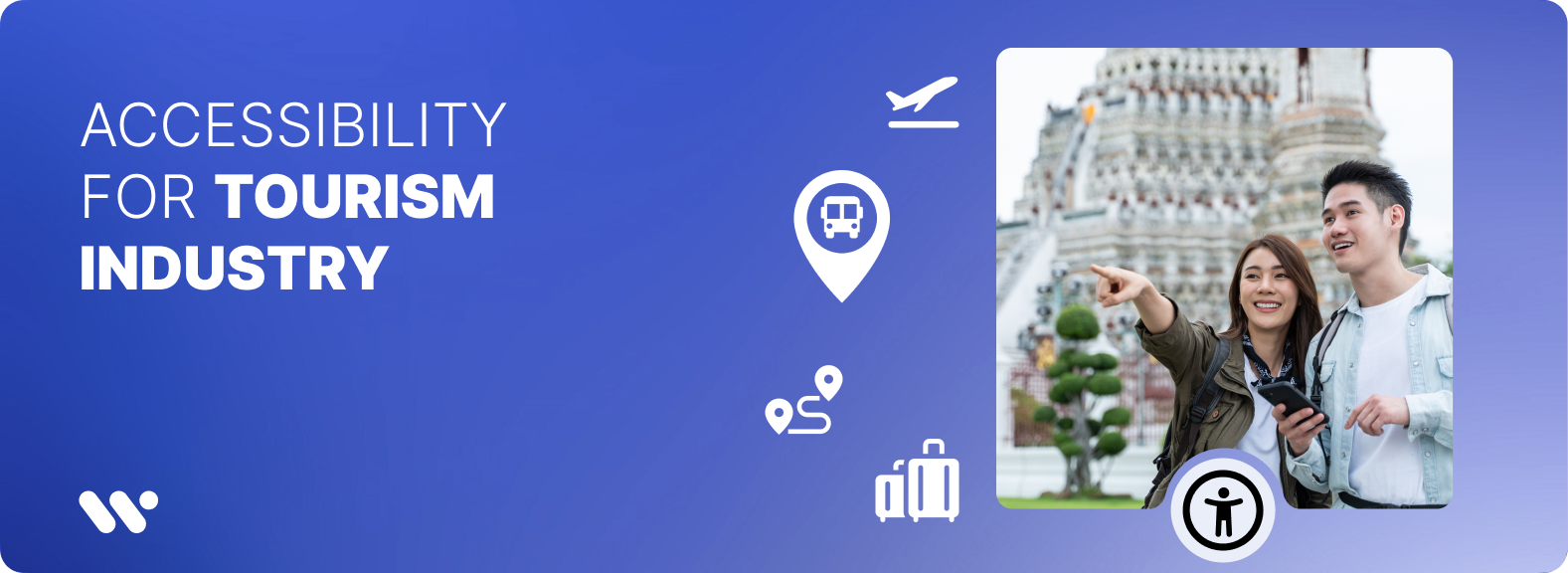

Accessible tourism refers to the practice of ensuring that tourist destinations, products, and services are accessible to all individuals, regardless of their physical or intellectual limitations, disabilities, or age.
This encompasses providing barrier-free infrastructure, inclusive facilities, and universally designed environments that enable everyone to participate in and enjoy tourism experiences.By embracing accessibility, the tourism industry not only upholds human rights but also taps into a significant market segment, enhancing overall visitor satisfaction and business revenues.
Ensuring accessibility in tourism is crucial for promoting equal access and inclusivity, allowing individuals with disabilities, the elderly, and families with young children to enjoy travel experiences without barriers. This inclusivity not only upholds human rights but also opens significant business opportunities, as destinations and companies can attract a broader range of visitors and enhance their revenues.
Moreover, accessible tourism benefits society as a whole, contributing to sustainable development and improving the quality of life for all citizens.
Tourism accessibility encompasses various types, including physical accessibility (ensuring barrier-free infrastructure for individuals with mobility challenges), digital accessibility (making online platforms usable for all, including those with visual, hearing, or cognitive impairments), and sensory accessibility (accommodating individuals with visual or hearing impairments).
Key components involve barrier-free destinations with accessible infrastructure, inclusive transportation options, high-quality services delivered by trained staff, and accessible information through user-friendly marketing and reservation systems.
Implementing universal design principles—such as equitable use, flexibility, and simplicity—ensures tourism facilities and services are usable by everyone, promoting inclusivity and equal access.
The tourism industry recognizes that providing accessible tourism experiences is not only a matter of inclusivity but also presents an exceptional business opportunity. By ensuring that tourism destinations and services are inclusive and accessible, businesses can attract a broader clientele, including individuals with disabilities and the elderly. This approach enhances the overall travel experience for all visitors and strengthens the reputation of destinations committed to equal access. Moreover, embracing accessibility can boost revenues by tapping into a loyal and diverse customer base.
Accessible travel ensures that people with disabilities, including those with mobility impairments, visual or hearing impairments, and families traveling with children, have equal access to tourism destinations and services. This inclusivity allows everyone to participate in and enjoy tourism experiences
Implementing universal design principles in tourism infrastructure and services enhances the travel experience for all, promoting equal access and inclusivity.
Developing accessible destinations requires comprehensive planning of infrastructure and tourism facilities to ensure inclusivity.
This includes providing accessible transportation options, such as buses and trains equipped for wheelchair users, and accommodations with features like ramps, elevators, and adapted rooms. In the hospitality sector, staff training is essential to deliver high-quality services that meet diverse needs.
Implementing universal design principles ensures that facilities and services are usable by all, promoting equal access and enhancing the overall travel experience
Ensuring accessibility in the tourism industry is guided by several key standards and regulations. The Americans with Disabilities Act (ADA) mandates that public accommodations, including tourism services, provide equal access to individuals with disabilities.
In the digital realm, the Web Content Accessibility Guidelines (WCAG) offer a framework for making web content accessible to people with various disabilities. Additionally, the Convention on the Rights of Persons with Disabilities emphasizes the importance of universal accessibility, advocating for inclusive tourism practices. The ISO 21902:2021 standard provides comprehensive guidelines to ensure tourism services are accessible to all.
Promoting accessible tourism in destination marketing enhances inclusivity and presents an exceptional business opportunity. By catering to travelers with diverse needs, destinations can attract a broader audience.
Providing detailed tourism accessibility brochures, showcasing accessible tourism attractions, and integrating accessibility into tourism products help destinations stand out. In Europe, various initiatives focus on creating accessible tourism to improve visitor experiences
Several organizations are dedicated to promoting accessible tourism globally:
United Nations World Tourism Organization (UNWTO): The UNWTO emphasizes that accessibility for all to tourism facilities, products, and services should be a central part of any responsible and sustainable tourism policy. They provide guidelines and support to destinations and companies to embrace all visitors and enhance their revenues.
Society for Accessible Travel & Hospitality (SATH): A U.S.-based non-profit organization founded in 1976, dedicated to promoting accessibility in the travel and tourism industries. SATH works to raise awareness of the needs of travelers with disabilities and to remove barriers to free access
WeAccess.ai is revolutionizing tourism accessibility by providing cutting-edge solutions that remove barriers for travelers with disabilities. By leveraging AI-driven insights, it ensures universal accessibility in tourism facilities, transportation, and hospitality, making travel more inclusive. Whether optimizing accessible destinations or improving digital accessibility, WeAccess.ai empowers businesses to offer seamless, inclusive travel experiences for all.